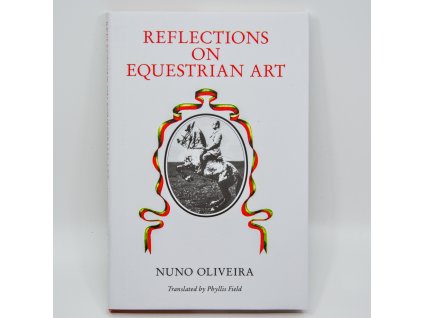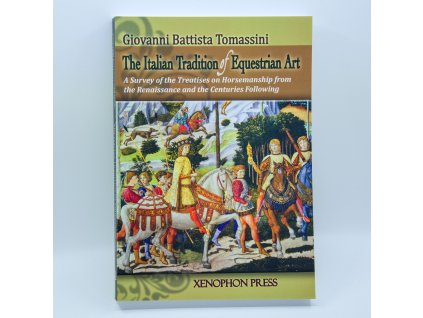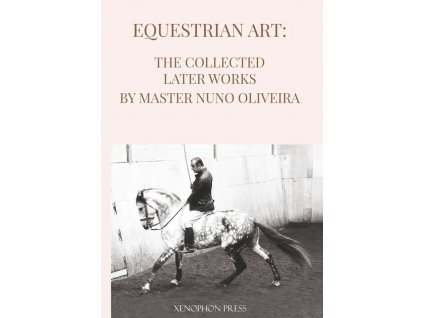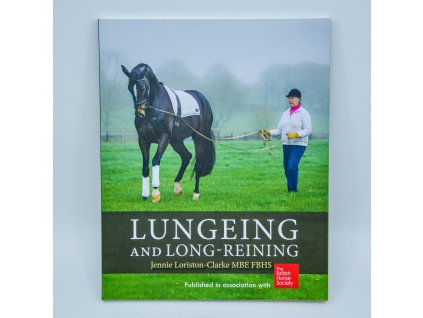Equestrian Art: The Collected Early Writings (1951-1956) by Master Nuno Oliveira (hard cover)
Související produkty
Detailní popis produktu
The articles address a wide variety of topics including, for example, diagonal and lateral effects, the fine tuning of aids, the horse's memory, etc. These articles are true gems of equestrian literature, testifying to the immense capacity for synthesis that Oliveira demonstrated with regard to the theoretical debates of the discipline.
We present here for the first time ever, a complete and new English translation of these 62 articles, embellished with photographs of the same years.
Master Nuno Oliveira is considered to be one of the leading figures (if not the leading figure) in the Equestrian Art of the 20th century. He was not only an expert in the discipline and its history but also an outstanding teacher and mentor, an instructor with unusual intelligence and a highly developed equestrian feeling, an unrivaled artist in the saddle.
His great genius consisted of the comprehensive synthesis of the two emerging but up until then, contrary schools of the Old French riding masters as represented by the teachings of Francois Robichon de la Guérinière (of the 18th century) and Francois Baucher (of the 19th century). What made Oliveira stand out was his unwavering, unprejudiced pragmatism, which let him find the best method from all of the schools for working on a specific goal with a specific horse at a specific moment.
He believed that every single horse had to be trained to the highest degree of perfection and shine within the scope of its individual possibilities. He rose above any doctrinal dispute and focused on the task at hand. A rider should not only ride but also observe, study, read and think carefully. He/she should act rationally and calmly, never act brutally or with force; he should have love of the horse and develop great equestrian feeling, the greatest of all equestrian virtues.
To achieve this, he taught with the messages of Etienne Beudant and Faverot de Kerbrech: "Ask often, be satisfied with a little, and reward often."
Doplňkové parametry
| Kategorie: | Drezura |
|---|---|
| EAN: | 9781948717335 |
| Jazyk: | angličtina |
| Vazba: | pevná |
| Počet stran: | 264 |
| Nakladatel: | Xenophon Press, 2022 |
| ISBN: | 9781948717335 |
Buďte první, kdo napíše příspěvek k této položce.
Pouze registrovaní uživatelé mohou vkládat příspěvky. Prosím přihlaste se nebo se registrujte.
| Výrobní společnost : | Xenophon Press LLC |
|---|---|
| Adresa : | 7518 Bayside Road, Franktown, VA 23354-2106, UNITED STATES |
| E-mail : | xenophonpress@gmail.com |
.png)















